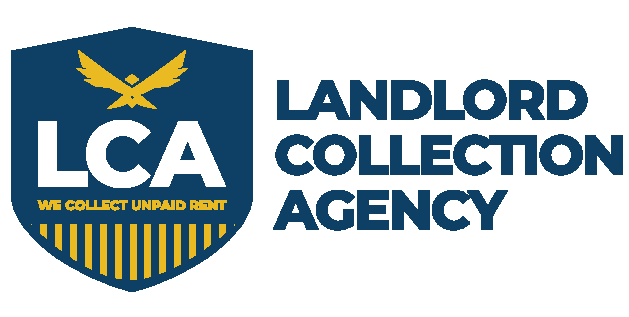FCRA Rights
A Summary of Your Rights Under the Fair Credit Reporting Act
The federal Fair Credit ReportingAct (FCRA) promotes the accuracy, fairness, and privacy ofinformation in the files of consumer reporting agencies. There are manytypes of consumer reporting agencies, including credit bureaus that gather and sell information about your creditworthiness to creditors, employers, landlords, and other businesses. The FCRA gives you specific rights, which are summarized below. You mayhave additional rights under state law. For more information, go to http://www.ftc.gov/credit, or write to: Consumer Response Center, Federal Trade Commission, 600 Pennsylvania Ave. N.W., Washington, D.C. 20580.
You must be told if information in your file has been used against you. Anyone who uses informationfroma consumer reportingagency todenyyour application forcredit, insurance, or employment – or take another adverse action against you – must tell you and give you the name, address, and phone number of the agency that provided the information.
You can find out what is in your file. At any time, you may request and obtain your report from a consumer reporting agency. You will be asked to provide proper identification, which may include your Social Security number.In many cases the report will be free. You are entitled to free reports if a person has taken adverse action against you because of information in a report; if you are the victim of identify theft; if you are the victim of fraud; if you are on public assistance; or if you are unemployed but expect to apply for employment within 60 days. In addition, you are entitled to one free report every twelve months from each of the nationwide credit bureaus and from some specialized consumer reporting agencies. See http://www.ftc.gov/credit for details about how to obtain your free report.
You have a right to know your credit score. Credit scores are numerical summaries of a consumer’s creditworthiness based on information from consumer reports. For a fee, you may get your credit score. For more information, click on http://www.ftc.gov/credit. In some mortgage transactions, you will get credit score information without charge.
You can dispute inaccurate information with the consumer reporting agency. If you tell a consumer reporting agency that your file has inaccurate information, the agency must take certain steps to investigate unless your dispute is frivolous. For an explanation of dispute procedures, go to http://www.ftc.gov/credit.
Inaccurate information must be corrected or deleted. A consumer reporting agency or furnisher must remove or correct information verified as inaccurate, usually within 30 days after you dispute it.However, a consumer reporting agency may continue to report negative data that it verifies as being accurate.
Outdated negative information may not be reported. In most cases, a consumer reporting agency may not report negative information that is more than seven years old, or bankruptcies that are more than 10 years old.
Access to your file is limited. A consumer reporting agency may provide information about you only to people with a valid need as determined by the FCRA — usually to consider an application with a creditor, insurer, employer, landlord, or other business.
Your consent is required for reports that are provided to employers. A consumer reporting agency may not give out information about you to your employer, or potential employer, without your written consent. Blanket consent maybe given at the time of employment or later.
You may choose to remove your name from consumer reporting agency lists for unsolicited credit and insurance offers. These offers must include a toll-free phone number you can call if you choose to take your name and address off lists in the future. You may opt-out at the major credit bureaus by calling 1-800-613-6743.
You may seek damages from violators. If a consumer reporting agency, a user of consumer reports, or, in some cases, a furnisher of information to a consumer reporting agency violates the FCRA,you may sue them instate or federal court.
Identity theft victims and active duty military personnel have additional rights. Victims of identity theft have new rights under the FCRA.Active-duty military personnel who are away from their regular duty station may file “active duty” alerts to help prevent identity theft. For more information, visit http://www.ftc.gov/credit.
The FCRA gives several federal agencies authority to enforce the FCRA:
| TO COMPLAIN AND FOR INFORMATION: | PLEASE CONTACT: |
|---|---|
| Consumer reporting agencies,creditors and others not listed below | FederalTradeCommission Consumer Response Center - Washington,DC20580 FCRA 1-877-382-4367(Toll-Free) |
| National banks, federal branches/agencies of foreign banks (word "National" or initials "N.A." appear in or after bank's name) | Office of the Controller of the Currency Compliance Management, Mail Stop 6-6 Washington,DC20219 800-613-6743 |
| Federal Reserve System member banks (except national banks, and federal branches/agencies of foreign banks) | Federal Reserve Board Division of Consumer&Community Affairs Washington, DC20551 202-452-3693 |
| Savings associations and federally chartered savings banks (word "Federal" or initials "F.S.B." appear in federal institution's name) | Office of Thrift Supervision Consumer Programs Washington, DC20552 800-842-6929 |
| Federal credit unions(words "Federal Credit Union" appear in institution's name) | National Credit Union Administration 1775 DukeStreet Alexandria, VA22314 703-518-6360 |
| State-chartered banks that are not members of the Federal Reserve System | Federal Deposit Insurance Corporation Division of Compliance&Consumer Affairs Washington, DC20429 800-934-FDIC |
| Air, surface, or rail common carriers regulated by former Civil Aeronautics Board or Interstate Commerce Commission | Department of Transportation Office of Financial Management Washington, DC20590 202-366-1306 |
| Activities subject to the Packers and Stockyards Act, 1921 | Department of Agriculture Office of Deputy Administrator - Washington, DC20250 GIPSA 202-720-7051 |
